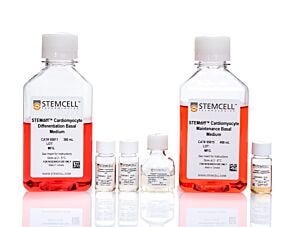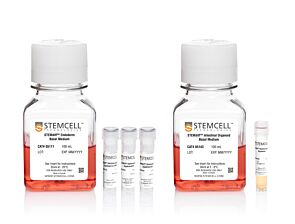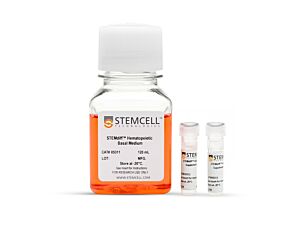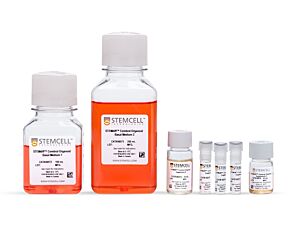Pluripotent Stem Cell Training
Training to support the culture of hPSCs and their differentiation towards cerebral organoids, intestinal organoids, cardiomyocytes, or hematopoietic progenitors
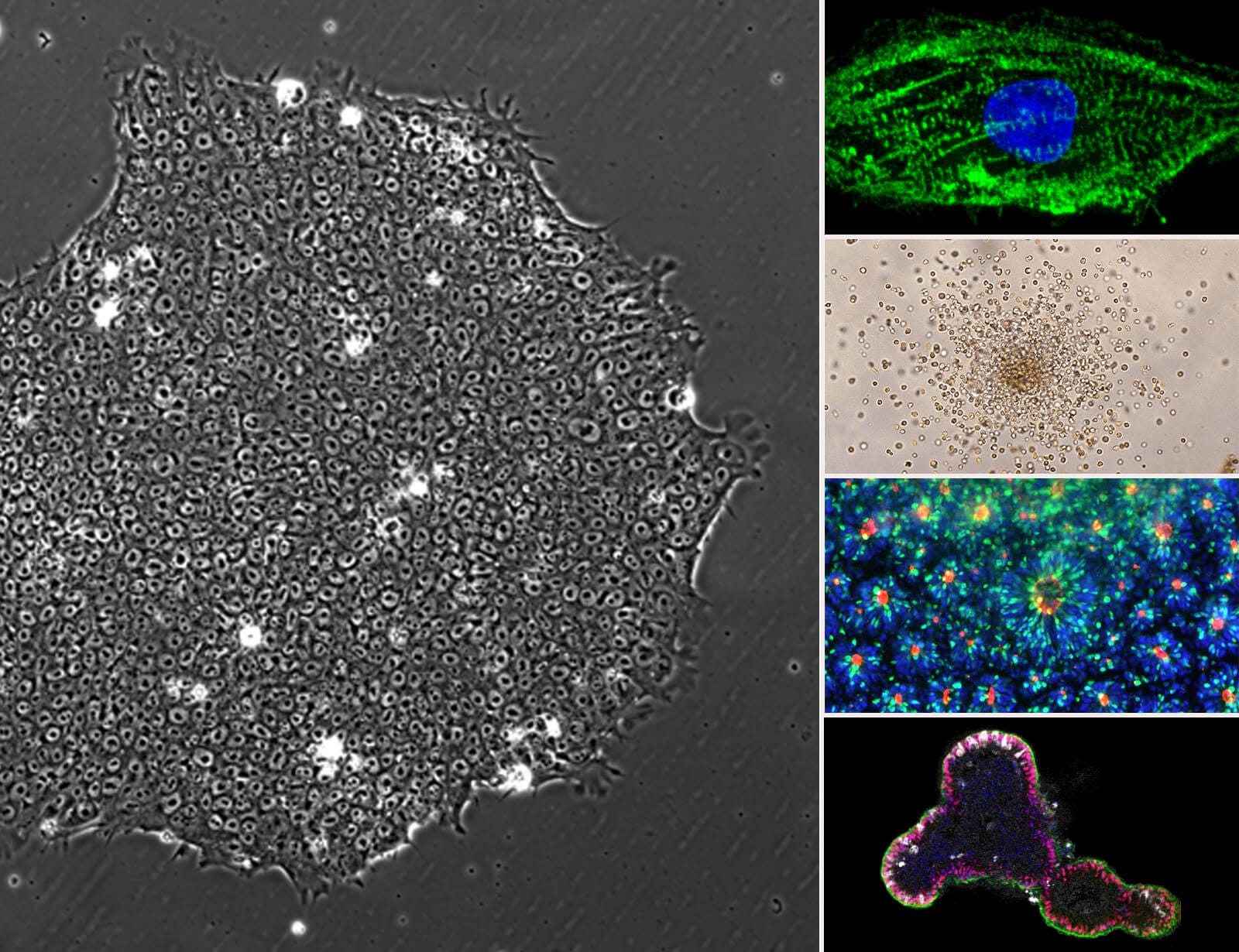
Sign Up
Please proceed to check out after completing this form. Payment information will be used to secure your registration and you will only be charged when the Intestinal Organoid Starter Kit is shipped.
Request Pricing
Thank you for your interest in this product. Please provide us with your contact information and your local representative will contact you with a customized quote. Where appropriate, they can also assist you with a(n):
Estimated delivery time for your area
Product sample or exclusive offer
In-lab demonstration
Overview
Speakers
Speakers will vary depending on course topic, date, and location.

STEMCELL Technologies

STEMCELL Technologies
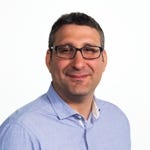
STEMCELL Technologies

STEMCELL Technologies

STEMCELL Technologies
Agenda
Note that each day will end at approximately 4:30 pm with the course dinner taking place on the evening of Maintaining Human Pluripotent Stem Cells (hPSCs)
All course options followed by wrap-up which includes a quiz, evaluation, and certificate presentation.
Reprogramming of Somatic Cells to Induced Pluripotent Stem Cells (iPS Cells)
-
Lecture: Isolation and Reprogramming of Somatic Cells to iPS Cells
-
Practical Session: Isolation of Peripheral Blood Mononuclear Cells (PBMCs)
- Overview of EasySep™ cell separation system
- Demonstrate preparation of PBMCs using SepMate™
- Observe culture-expanded blood cells in StemSpan™ SFEM
-
Practical Session: Reprogramming of Somatic Cells to iPS Cells
- Demonstrate transfection of human fibroblasts using ReproRNA™-OKSGM
- Observe reprogrammed cells cultured in ReproTeSR™
-
Practical Session: Selection and Picking of iPS Cell Colonies
Maintaining Human Pluripotent Stem Cells (hPSCs)
-
Lecture: Maintaining and Assessing High-Quality hPSC Cultures
-
Lecture: Genome Editing with CRISPR-Cas9
-
Practical Session: Evaluating Quality of hPSC Cultures and Plate Coating
- Observe time course of hPSC cultures and review colony morphology
- Practice plate coating with Matrigel® or Vitronectin XF™
-
Practical Session: Passaging and Long-Term Maintenance of hPSCs
- Practice enzyme-free passaging of hPSCs using Gentle Cell Dissociation Reagent or ReLeSR™
-
Practical Session: Cryopreservation and Thawing of hPSCs
-
Dinner (Courtesy of STEMCELL Technologies)
Differentiating hPSCs (Select Option in Sign-Up Form)
Guest Lecture by Christine Mummery: Microphysiological Systems Based on hiPSC to Study Cardiovascular Disease (Available in The Netherlands session only)
-
Lecture: Modeling Long QT Type 2 Syndrome using the STEMdiff™ Cardiomyocyte System
-
Practical Session: Evaluation of the Quality of hPSC Cultures after Passaging
-
Practical Session: Preparation of hPSCs as Single Cells for Cardiomyocyte Differentiation
-
Practical Session: Observation of hPSC-Derived Cardiomyocytes
- Observe time course of hPSC-derived cardiomyocytes
- Dissociation and replating of hPSC-derived cardiomyocytes
-
Practical Session: Cryopreservation and Thawing of hPSC-Derived Cardiomyocytes and Downstream Applications
-
Lecture: Differentiation of hPSCs towards Hematopoietic Progenitor Cells
-
Practical Session: Evaluation of the Quality of hPSC Cultures after Passaging
-
Practical Session: Observation of hPSC-Derived HPCs
-
Practical Session: HPCs for Downstream Applications
- Harvest HPCs from culture supernatant
- Analyze hPSC-derived HPCs using the colony-forming unit (CFU) assay
-
Practical Session: Identification and Counting of Colonies in the CFU Assay
-
Lecture: Differentiation of hPSCs Towards Neural Progenitors and Neural Cell Types
-
Practical Session: Generation of Embryoid Bodies (EBs) Using AggreWell™ and Preparation of Single Cell hPSCs for Monolayer-Based Protocols
-
Practical Session: Differentiation of hPSCs to NPCs
- Examine neural aggregates in AggreWell™ and harvest EBs
- Assess neural induction by scoring neural rosette formation
-
Lecture: Using Standardized Reagents to Generate Cerebral Organoids from hPSCs
-
Practical Session: Embed EBs in Matrigel® to Generate Cerebral Organoids
-
Lecture: Differentiation of hPSCs Towards Intestinal Organoids
-
Practical Session: Evaluate the Quality of hPSC Cultures after Passaging from Previous Day
-
Lecture: Applications of hPSC-derived Intestinal Organoids
-
Practical Session: Differentiation of hPSC Towards Intestinal Organoids
- Observe time course of hPSC cultures to evaluate differentiation efficiency
-
Practical Session: Harvest and Embed hPSC-Derived Mid-/Hind-gut Spheroids
- Embed spheroids in Matrigel®
- Observe hPSC-derived intestinal organoids at passage 0
-
Practical Session: Passage hPSC-Derived Intestinal Organoids
- Observe hPSC-derived intestinal organoids
- Passage and maintain hPSC-derived intestinal organoids
Accommodation
Vancouver, CA
Cambridge, UK (Transport included from this location to and from training venue - Cambridge UK only)
Leiden, NL
Please contact education@stemcell.com for more information on seasonal rates (when applicable).
Policy
Travel Visas
Travel Visa Requirements
CanadaUnited Kingdom
Netherlands
Cancellation
Applications
This product is designed for use in the following research area(s) as part of the highlighted workflow stage(s). Explore these workflows to learn more about the other products we offer to support each research area.
Resources and Publications
Educational Materials (12)
STEMCELL TECHNOLOGIES INC.’S QUALITY MANAGEMENT SYSTEM IS CERTIFIED TO ISO 13485. PRODUCTS ARE FOR RESEARCH USE ONLY AND NOT INTENDED FOR HUMAN OR ANIMAL DIAGNOSTIC OR THERAPEUTIC USES UNLESS OTHERWISE STATED.












